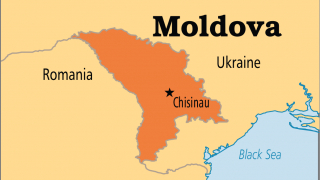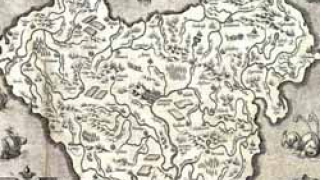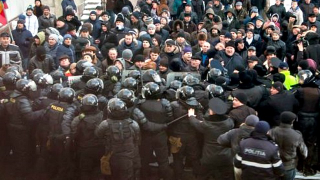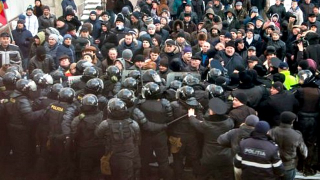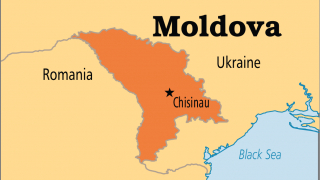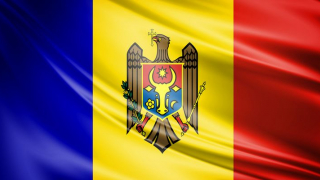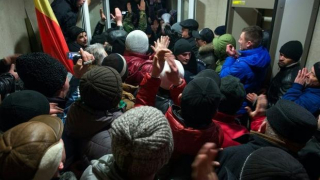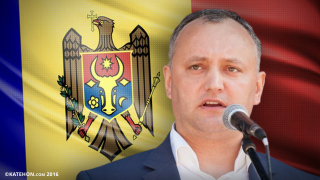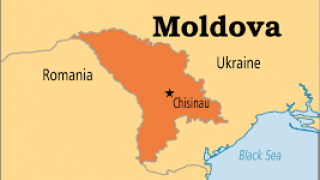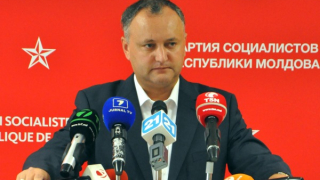A peculiar brand of justice: The Rosca file
It was a grey and rainy day in Chisinau but the weather was the last thing on Iurie ROSCA’s mind. We had just exited the office of the judge tasked with handling the first hearing bearing on the merits of the case and it had been a short one: in the end, it was agreed that the Parties would reconvene next November 30th so as to allow for the Court of Appeal to examine the pending issue dealing with the blanket seizure of cash and real estate property during an early morning raid carried out last February by the notorious and all-powerful of Anti-corruption Prosecution Office at ROSCA’s domicile.
This incident was but one of the reasons that prompted me to visit Chisinau on November 11-12 for I should confide that I had been reading a series of articles about the criminal prosecution directed against one of Moldova’s most vocal critic of this country’s government.
Iurie ROSCA is someone of a larger-than-life figure in the world of Moldovan politics. For the last 30 years, he has come to embody the young Republic’s refusal to bow down in the face of larger Powers jostling for influence in the post-Soviet order. During the Perestroika period ROSCA emerged as a rising political personality following the collapse of the Soviet Union. While his endearing courage coupled with his fierce commitment to the core principles of political independence and national sovereignty have failed to endear him to his adversaries, ROSCA has risen to become a source of inspiration to millions of Moldovan citizens.
Iurie ROSCA had first come to public attention when in 1988, he decided along with other militants to create the country’s first anti-communist party.
Having founded the first “Samizdat” newspapers, ROSCA went on to organize a vast popular movement in favor of national emancipation. As a party leader, he participated in all the major events of the last three decades, serving four times as MP between 1994 and 1999. He then came to serve twice as vice-president of Parliament before becoming Deputy Prime Minister in 2009.
ROSCA has long figured as one of the most prominent journalists and political scholars. He is also the author of several books. Throughout his political career, his relentless fight against endemic corruption has served as a catalyst to the uncovering of a series of major political scandals and crises. Ever since retiring from politics in 2009, his articles and interviews have regularly been featured in media outlets both at home and abroad.
In recent years ROSCA has operated a think tank called the Chisinau Forum. This has allowed him to pursue his virulent critic of the political establishment that to this day maintains complete control over Moldovan politics. The Chisinau Forum has over the years featured dozens of personalities from both Western Europe and Eastern Europe, including political scientists, economists, experts in geopolitics, writers, journalists, etc.
Because Moldovan authorities have been subjected to severe criticism from the European Union, the Council of Europe and other international institutions for their persecution of political opponents, it has become routine for the government to resort to using investigative state-organs as well as the judiciary to neutralize opponents. As a result of these politically-motivated persecutions, a number of political leaders and civic activists – including journalists and lawyers – have been forced to leave the country to avoid being arrested and jailed for merely exercising their fundamental right to free speech.
Iurie ROSCA’s case is thus not as much an exception as it is part and parcel of a larger witch-hunt campaign.
It is a known political technique that in order to neutralize someone impervious to all manners of political pressures, it becomes necessary to impinge on his moral character or as Francis BACON once wrote: “audacter calumniare, semper aliquid haeret” (“slander boldly, something always sticks”). After all, it worked in Brazil where both former Presidents LULA and Dilma YOUCEF, both accused of having presumably benefited from kickbacks in the context of the PETROBAS corruption scandal, have had to either resign or be placed in remand while judicial investigations are preventing them respectively from either running for office or benefiting from presidential immunity. Similarly, former President Rafael CORREA of Ecuador, a man who spearheaded the drive for his country’s emancipation from US meddling and granted political asylum to WIKILEAKS’ founder Julian ASSANGE, is currently the target of an extradition request issued by his country’s judicial authorities for having allegedly ordered in 2012 the botched kidnapping of a businessman in BOGOTA. As relates to ROSCA, what better way could be used to undermine his message other than to implicate him in an alleged affair of traffic of influence whereupon it is alleged via a complaint filed only in February 2017 (!!) that between 2009-2011, the then-already retired founder of the Popular Front of Moldova allegedly received monies in return for an alleged promise to secure the reversal by the Supreme Court of a lower court decision which bore on the annulations of administrative permits previously issued in the context of an obscure commercial development deal. All this begs the question: Aren’t we starting to see a pattern here?
To be sure, ROSCA had already sent me a French version of the indictment but I actually had to arrive in Moldova in order to thoroughly comb through the file and get the confirmation that ROSCA is literally being railroaded.
1. Violations of due process are endemic.
- ROSCA learned that he was a suspect in a criminal investigation as late as February 2018even though:
1. His name was expressly mentioned in the February 2017 complaint initially filed by a person himself convicted on corruption charges.
2. A quick perusing of the file reveals that ROSCA became an official suspect on 28th November 2017 even though AA 262 of the Criminal Code of Procedure (which allows for a “special investigative measures” regime is mostly used under a standard requiring “that a criminal offence has occurred” without any requirement that a suspect be actually identified. (A classic case of a “Fishing expedition”)
- This “special investigative measures” regime created a legal void which furthermore allowed for the issuing of a November 28th 2017 ordinance calling for a task force to be assembled in order to begin surveillance and phone tapping on the suspect. Interestingly enough, this very ordinance did provide that the person targeted by the assembled task force had to be notified within 30 days to his right to challenge the composition of the said task force. ROSCA was never notified of that right. (Indeed, when one takes into consideration that the official investigation not explicitly naming ROSCA as a suspect began in March 2017, there is every reason to suspect that for a period spanning over 11 months, ROSCA’s right to challenge the implementation of these special measures within 30 days was repeatedly ignored up to February 28, 2018 when he was finally informed of his status as a suspect and even though the State utterly failed to uncover the slightest modicum of incriminating evidence.)
- ROSCA actually learned that he was a suspect of a criminal investigation on the morning of Feb. 28th 2018 when law enforcement suddenly barged into his house at the crack of dawn.
- During the raid on ROSCA’s domicile, personal property belonging to third parties were confiscated which are currently the subject of a separate procedure at civil law. (As of this writing, the Court of Appeal in COMRAT has denied Plaintiffs’ request that their property be restituted)
2. No evidence exists to support any ties between the Defendant and the alleged commission of a crime
- The Prosecution has produced no third party eyewitnesses to the alleged violation(s)
- The Prosecution has produced no evidence as a result of the “special investigative measures” regime
- No money trail has been established whatsoever corroborating the Plaintiff’s allegations that ROSCA received “large amounts” of money.
I would like to conclude by saying as that I left Moldova, I was left with the distinct impression that this country still has got a long way to go if it wishes to one day join the European Union. The rule of law is no mere gimmick. If the political class is willing to sacrifice the very perception of judicial independence in order to prosecute a public figure for his political opinions on the scantest of evidence, all they are going to end up attracting is unwanted attention.
Arnaud DEVELAY is a Franco-American international human rights lawyer. He can be reached via email: international.lawyer75@yahoo.com
Source - FLUX


